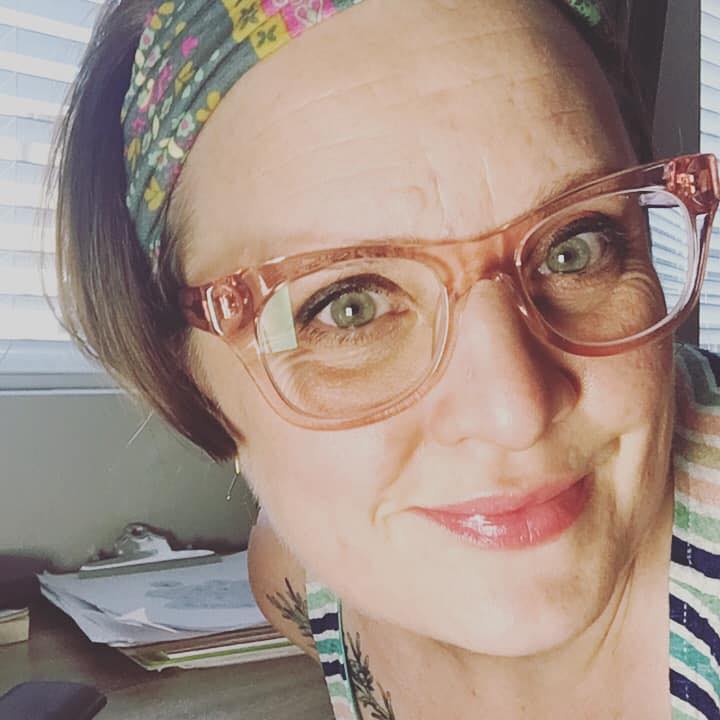Describe your life prior to diagnosis?
I suspect I have celiac disease or gluten sensitivity but have not been officially diagnosed.
I remember when I was small, my paternal grandma had itchy sores on her arms. My mom would say, “If she’d stop scratching, that would solve the problem.” When I was 38, I got what I thought were bug bites on my ankles. They wouldn’t go away and itched like crazy. More began to appear around my knees and ankles, then on my hands. The itch was unbearable and I felt so ashamed about the way my skin looked.
I went to my primary care doctor, who told me I had MRSA and put me on a strong antibiotic. The problem began to resolve for a short time but came back. I went to a dermatologist in my small town, who thought I had scabies, and my whole family had to be treated for it, twice. (I did not have scabies and the treatment did not solve the problem.) He also biopsied a lesion and sent it off to a lab, which was very expensive for me, but inconclusive.
By 2014, I noticed that my outbreaks seemed to track to when I ate milk products. I cut them out of my diet that summer and saw some improvement but not resolution. In the spring I went to the allergist in my small town, who did blood tests, and that was the first time I was told I was “allergic to wheat.” The word “celiac” was not mentioned. I mostly cut out wheat products, and again noticed an improvement, but I was not super-vigilant the way people with celiac disease need to be, and I continued to have problems, albeit less severe.
A friend who had been diagnosed told me she recognized my skin problems as dermatitis herpetiformis (DH), which only occurs with celiac disease. At that point, I began to try to be more vigilant in avoiding wheat. I moved to a new city and got better medical care, and my new providers agreed that my friend was right.
Why haven’t you been able to get an official diagnosis?
I still have not been officially diagnosed because I am not willing to add gluten back into my diet [necessary for the gluten challenge for testing/diagnosis], but have been told by a gastroenterologist and an allergist that they are reasonably sure I have celiac disease.
My new gastroenterologist believes the damage to my gut caused by celiac disease is the reason I have trouble with dairy, nightshades, corn, and some other common allergens—all of them now trigger skin problems.
It took eight years from first symptoms to a provider agreeing that I was probably right and had celiac disease.
Do you believe anything could have helped you get a diagnosis?
Providers in small, rural places are missing knowledge about how celiac disease can present without gastric symptoms. I think that my dermatologist should have biopsied more than one lesion and should have found a lab within my insurance network to send them to. There’s a chance the reaction that causes DH could have been caught at that point.
Describe your experience living gluten-free:
It’s still a struggle for me because I am a single working mom with kids who have their own health challenges. It is not practical for me to keep a totally gluten-free kitchen and our busy life makes it hard to be prepared with safe foods, sometimes. I also find it expensive to purchase gluten-free foods that do not require a ton of prep time from me—time I just don’t have. So I still do have outbreaks from time to time but overall it’s much better. I’m hoping with time I can heal enough to get cheese back in my life.



